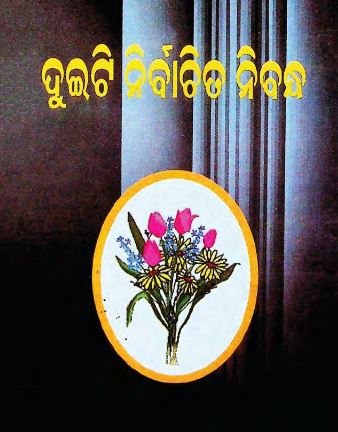Duiti Nirbachita Nibandha is a noteworthy Odia essay book authored by Babaji Charan Sethi, and published in 2007. This literary effort stands out as a significant contribution to Odia literature, encompassing the delicate art of essay writing within a regional context. The book thrives on amalgamating insightful perspectives with cultural poignancy, thus presenting a profound experience for readers keen on exploring the intricacies of Odia intellectual and cultural landscapes.
The book, translating to ‘Two Selected Essays,’ comprises two distinguished essays that are central to understanding its thematic and narrative depth. Babaji Charan Sethi employs his acute observational skills and mastery over the Odia language to traverse complex thought processes, managing to make them accessible to readers. His essays are not only reflective of his erudite background but also echo his deep connection with Odia culture and ethos.
While the titles and content specifics of the two essays aren’t elaborated here, it is evident that each essay resonates with distinct themes, often pivoting around cultural reflections, social dynamics, and philosophical musings. The essays go beyond mere narration, delving into analytical dissections and critical reflections which provoke thought and engage the reader in a meaningful discourse about contemporary and historical Odia society.
Babaji Charan Sethi’s book can be approached as a research thesis in its own right, albeit in a more literary and less academic format. It explores the convergence of personal experience and collective memory, aiming to unearth the intricate layers of Odia life and identity.
Sethi’s research methodology appears rooted in ethnographic observation and literary analysis, crafting narratives that are both personal and universal. He intertwines empirical insights with theoretical frameworks, thereby allowing readers to appreciate both the anecdotal and scholarly import of his work.
What makes “Duiti Nirbachita Nibandha” fascinating is Sethi’s meticulous attention to detail and his capacity to synthesize these details into coherent, captivating essays. His essays serve as windows into the socio-cultural fabric of Odisha, making them invaluable for anyone keen on undertaking research related to Odia culture, literature, and society.
The translation of such a pivotal work from Odia to other languages is a venture that requires not only linguistic proficiency but also cultural sensitivity. The beauty of Sethi’s work lies in its linguistic authenticity and cultural nuances, aspects that are vitally important when translating.
A translator must ensure that the subtleties of Sethi’s prose, the idiomatic expressions, and the cultural context are preserved. This involves a deep understanding of the source language (Odia) as well as the target language. Proper translation would also demand comprehension of the underlying themes, societal implications, and the inherent tone of the essays. An effective translation would allow the book to reach a broader audience, thereby increasing its impact and fostering greater appreciation for Odia literary traditions.
“Duiti Nirbachita Nibandha” by Babaji Charan Sethi stands as a timeless piece of Odia literature. Its essays are not only exemplary of Sethi’s eloquence and intellectual prowess but also provide an enduring commentary on the cultural and social aspects of Odia life. The book’s publication in 2007 marked an important milestone, endowing readers with a deeper understanding of their heritage. Whether approached as literature, research, or a subject of translation, Sethi’s essays invite readers to undergo an immersive journey through the landscapes of Odia thought and experience.
Books Info
| Books name | Duiti Nirbachita Nibandha/ଦୁଇଟି ନିର୍ବାଚିତ ନିର୍ବନ୍ଧ |
| Translated | Babaji Charan Sethi |
| No Of pages | 157 |
| Publisher | Smt Ashalata Sethy |
| Publication | 2007 |
| Printed At | B.N Printer |
| Distributor | NA |

